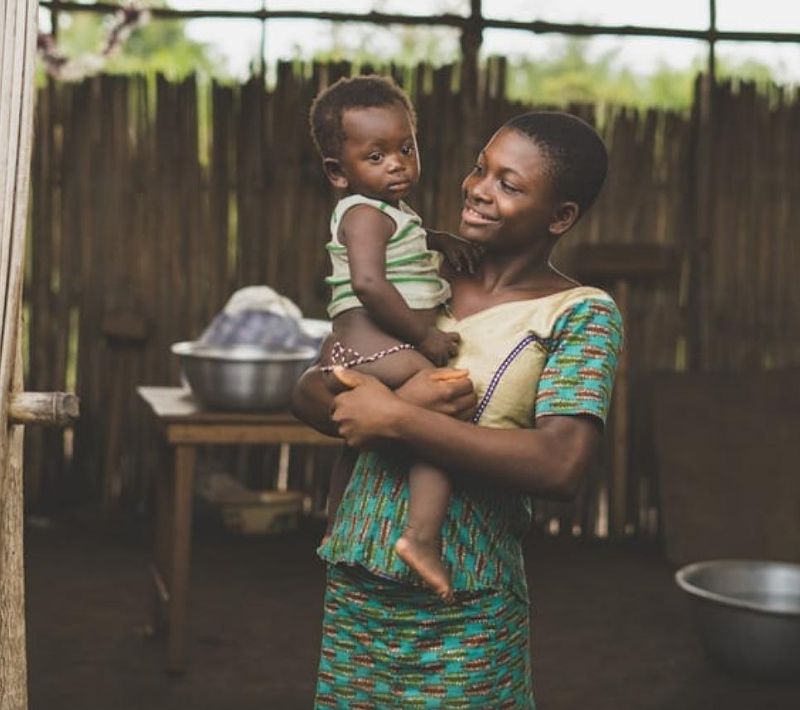Maternal Mortality and The High Cost of Hospital Delivery In Nigeria

The high maternal mortality rate in Nigeria has been linked to a number of things. From lack of education to age and socioeconomic status of the mother. The poverty level is also another causative of this problem. The poverty level and the widening gap between the rich and the poor in Nigeria reflects in many sectors of society. One of these sectors is the health sector. Today we will be talking on the relationship between maternal mortality and the rising cost of hospital delivery in Nigeria.
Close to 200 million people inhabit Nigeria, considered Africa’s most populous country. Nigeria is also the country where nearly 20% of all global maternal deaths happen. Between 2005 and 2015, it is estimated that over 600 000 maternal deaths and no less than 900 000 maternal near-miss cases occurred in the country.
In 2015, Nigeria’s estimated maternal mortality ratio was over 800 maternal deaths per 100 000 live births, with approximately 58 000 maternal deaths during that year. By comparison, the total number of maternal deaths in 2015 in the 46 most developed countries was 1700, resulting in a maternal mortality ratio of 12 maternal deaths per 100 000 live births. In fact, a Nigerian woman has a 1-in-22 lifetime risk of dying during pregnancy, childbirth, or postpartum/post-abortion; whereas in the most developed countries, the lifetime risk is 1 in 4900.
Source: WHO

Image Source: giphy.com
High Cost of Hospital Delivery In Nigeria
In General, government-owned hospitals’ cost of delivery skyrockets as fast as the Nigerian economy plunges into recession. Giving birth to a new baby which is supposed to be an event filled with joy has become one filled with worries. Many expectant parents have plunged into debt because of the heavy burden the cost places on their shoulders.
In a situation where a normal birth (delivery plus antenatal) could cost anything from 45,000 – 100,000 Naira, and a cesarean birth from 100,000 Naira and above, what hope does a family where both spouses earn a minimum wage which is just 30,000 Naira a month have in footing the bills in cases of crisis? What about women earning below minimum wage? The stay-at-home moms who do not earn anything at all?
We have all heard of cases where new mothers were detained at hospitals for weeks or months because they could not afford to pay the fee. Husbands have abandoned their wives and babies and women have abandoned their babies in the face of such daunting odds.
We are slowly getting to a place where Ante-natal care and hospital deliveries will be an option only for the rich and affluent. As of 2019, statistics say that over 60% of Nigerian women do not patronize hospitals for their Ante-natal care and deliveries. Women who go to private hospitals get charged heavily. Those who go to general hospitals complain of mistreatment meted on them by the nurses who are supposed to be caregivers.
Women who live in rural areas where adequate health care is a myth and so-called health centers provided by the government are either empty or do not have adequate equipment to take care of an expectant mother’s needs. These women also encounter the problem of transportation. Rural transportation is usually unreliable in times of emergency.
Despite the government’s attempt to subsidize delivery costs and make health care available for mothers, there has been a rapid increase in cost and slow implementation of government directives. This situation makes hospital delivery impossible for a lot of pregnant women in the country. This issue has led women to embrace dangerous alternatives such as:

Image Source: giphy.com
Unsupervised Home Births
This is when a woman gives birth alone, without the assistance and supervision of a midwife. This practice is extremely dangerous and can result in the death of both mother and fetus. Sadly, it is encouraged by the general belief that women who give birth at home are strong women or lucky women.
These women are guilty of painting such an image of themselves. They tell stories of how they “accidentally” gave birth at home before they could make it to the hospital, posing as Hebrew women figures who are superior to other women on the basis of easy births.
This leaves an unhealthy belief in the minds of others, especially women of 25-34 years who are still within their prime childbearing age. Tempting them to rely on age factors and a perceived possession of strength to make a decision about where to deliver their babies. It is worthy to note that there is a 50% chance of dying during an unsupervised home delivery.
Some dangers of this method are:
- Death of mom-to-be due to hemorrhage (bleeding) during or after the birth process.
- Death of mom-to-be due to unavailability of blood transfusion option after continued blood loss.
- Death of mom-to-be in cases where the baby is breached or there is more than one baby.
- Death of mother-to-be due to infection contracted during the birth process.

Image Source: giphy.com
Use of Unqualified Midwives
The current trend in Nigeria right now is the emergence of local “midwives” who in most cases are just women who sell drugs in local chemist shops. Most of them are neither registered nor qualified to carry out births. These births are usually carried out in secret, with the midwife in constant fear of botching the delivery and getting tried for murder.
Despite the fear, both mother to be and midwife oftentimes go along with it. Relying on prayers, religion, or herbal knowledge for safe delivery. These births usually take place on the floor of the shop or inside an adjoining room. Uneducated women are surprisingly very trustful of them and generally call these “midwives” names like “Nurse” or even “doctor”. Unlike the hospital delivery system, this option is less expensive and is taken by women who are not so economically disadvantaged.
Anyone who is planning to take this road should know that it is a very dangerous one, especially for high-risk pregnancies. These midwives will brag about their abilities to you. They will use other successful births as testimonies but be wise enough to remember that every birth differs.
Some of the dangers of this method are:
- Death of birthing mom
- Seizures
- Neurological dysfunction in mom-to-be.

Image Source: giphy.com
Use of Birthing Centres
Birthing centers are great because they give very close and personal attention to birthing mothers. Mothers are able to develop a personal relationship with caregivers during the Antenatal days which is a huge plus. Also, if the birthing center is close to the mother’s home, transportation during labor is made easy. Mothers to-be also have the right to dictate how the birth process will be carried out and there’s a lower risk of getting infected by bacteria in the environment.
Birthing centers are cheaper than hospitals but they also pose a threat to the health of both mother and child. What happens when the mother or the baby is suffering complications? In a case where an early thorough medical exam is needed for the baby or mother, there is usually a mad scramble to get them to the hospital. Many women have lost their lives or their babies’ lives while trying to get to the hospital.
Some dangers of this method are:
- Death of mom-to-be due to hemorrhage
- Death of mom-to-be due to retained placenta
- Traditional midwives’ inability to manage cases of HIV/AIDS in birthing mothers.
- Death of mom due to obstruction and breeched delivery
- Contraction of infections by birthing mothers
Most of these deaths can be avoided if the government takes the responsibility of expectant mothers of low socioeconomic background. Adequate provision of free health care services such as Ante-natal care, delivery, and post-natal care would greatly reduce the level of pregnancy and birth-related deaths in the country.
Proper education of the girl child will also improve the overall attitude of these women to primary health care while also improving their standard of living. The government should make these health care plans in a way that takes care of the needs of all Nigerian women regardless of age, religion, and socio-economic status.
Health care providers should also play their part in ensuring government directives are obeyed and provisions adequately utilized. All women should also be treated with care and respect during the birthing process because this will create a favorable attitude towards hospital delivery. Nigerian women should also embrace enlightenment and shun ignorance.
The fight to reduce maternal mortality is a collective responsibility and if all stakeholders play their part, the frequency of pregnancy and birth-related deaths will be greatly reduced. Thank you for reading.
If you have any suggestions on how you think this issue could be tackled please share with us in the comment box. Don’t forget to like and share this post. Have a nice day.
She's a beauty and an exquisite lady who enjoys the high life in writing and poetry. Her writing style and prowess is innovative and focuses on the feminine perspective, bringing nothing but wholesome gratification to the African, Afrocentric and Afro-American women at large

